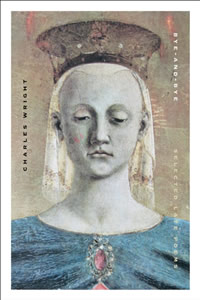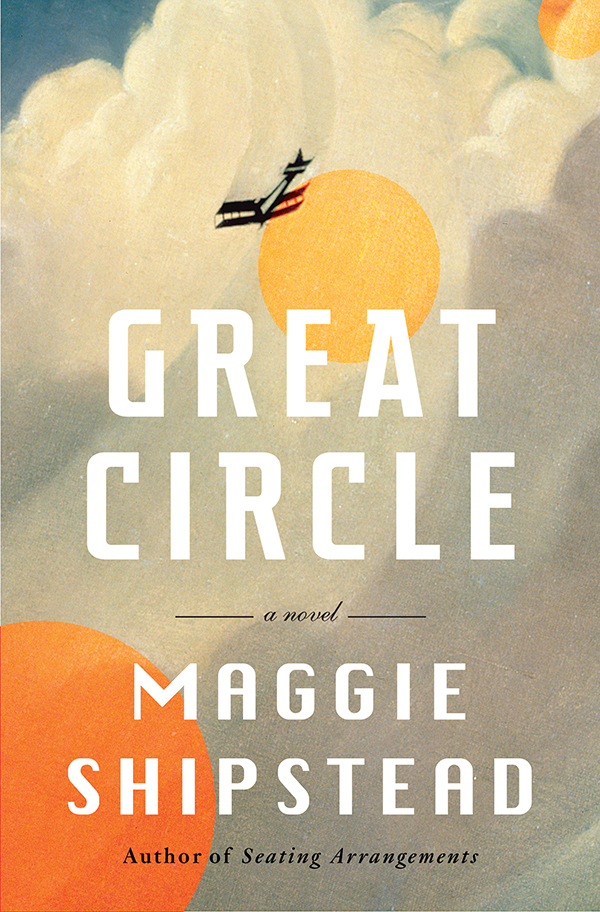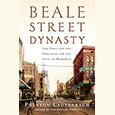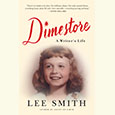What Endures
Charles Wright’s career has yielded a body of work that will long outlive its creator
In a profile on PBS’s NewsHour earlier this year, the great Appalachian poet Charles Wright read from a poem called “Body and Soul,” which also appears in his new collection, Bye and Bye: Selected Late Poems:
I used to think the power of words was inexhaustible,
That how we said the world
was how it was, and how it would be.
I used to imagine that word-sway and word-thunder
Would silence the Silence and all that,
That words were the Word,
That language could lead us inexplicably to grace,
As though it were geographical.
I used to think these things when I was young.
I still do.
These lines contain the three dominant themes of Wright’s poetry: language, landscape, and the idea of God. All are front and center in Bye and Bye, which collects most of the poems in Wright’s last five books: A Short History of the Shadow (2002), Buffalo Yoga (2004), Scar Tissue (2006), Littlefoot (2007), and Sestets (2009).
In a career that spans forty-five years and includes twenty-some books of poetry and every major poetry prize, from the Pulitzer to the National Book Award, Wright has kept his thematic lens remarkably focused. A typical Wright poem begins with the speaker in his backyard, describing the landscape or the memory of a landscape; the resulting metaphor then ignites a philosophical meditation, often concerning theological matters. For most poets, such thematic or stylistic repetition over the course of half a century would lead to unbearably boring poems. Even good poets can think of only so many ways to describe the weather. But Wright is in a class almost alone for his ability to make fresh, wildly inventive metaphors from the stuff of the everyday, natural world. “Body and Soul,” for example, opens with these lines:
 The world’s body is not our body,
The world’s body is not our body,
although we’d have it so.
Our body’s not infinite, although
This afternoon, under the underwater slant-shine
Of sunlight and cloud shadow,
It almost seems that way in the wind,
a wind that comes
From a world away with its sweet breath and its tart tongue
And casts us loose, like a cloud,
Heaven-ravaged, blue pocket, small change for the hand.
Wright’s search for meaning takes place, here and throughout his work, in the quotidian; he is ambivalent about the notion of God. In “Watching the Equinox Arrive in Charlottesville, September 1992,” for example, the speaker agrees with Jesus’s admonition to seek the divine in the ordinary:
Jesus said,
Lift up the stone and you will find me,
Break open a piece of wood, I’m there.
It’s hard to argue with that,
Hard to imagine a paradise beyond what the hand breaks.
The tension that so enlivens Wright’s work is his belief in transcendence but not in an otherwordly God. This paradox leads, inevitably, to much reflection about death, including the poet’s own. Bye and Bye, arriving in the eighth decade of Wright’s life, does not shy away from the subject. Indeed, a central question of Wright’s work has always been How do we live, knowing we will die?
For Wright, the answer is by paying attention. A lifetime spent searching out the divine in the stuff of this world has yielded a body of work that will long outlive its creator. Wright has, in effect, cheated death: his name will live on. Still, the poems in Bye and Bye suggest that this version of immortality is poor solace. As “Last Supper” laments, “I seem to have come to the end of something, but don’t know what.” And “Scar Tissue II” illustrates not only Wright’s belief in the divinity of the plainest things (e.g., dirt) but also and his uneasiness with the natural workings of life: “Hard to imagine that no one counts, / that only things endure.” The poem continues,
 Whatever we see does not see us,
Whatever we see does not see us,
however hard we look,
The rain in its silver earrings against the oak trunks,
The rain in its second skin.
Pity the people, Lord, pity their going forth and coming back,
Pity their sumptuous barricades
against the dark.
Show them the way the dirt works.
Born in 1935 in Pickwick Dam, Tennessee, Wright grew up in various Southern towns, spending the bulk of his childhood in Kingsport, Tennessee, and his high-school years in North Carolina, where he attended Episcopal schools. It was there that Wright became fluent in the language and ideas of Christianity, a fluency that would later, coupled and often juxtaposed against his interest in Eastern religions and philosophy, inform so much of his poetry. Wright joined the army after graduating from Davidson College; in 1959, while stationed in Italy, he discovered the poet Ezra Pound. Pound’s work so profoundly affected him that the course of Wright’s life, as he recounts in Halflife: Improvisations and Interviews, 1977-1987, “was changed forever.” At twenty-four, relatively late for a beginning poet, and in a locale a world away from his home in Appalachia, Wright began composing verse. Eleven years later, he published his first book, Hard Freight, and has since become one of the country’s major poets.
But for all the accolades, Wright remains refreshingly down to earth, as the NewsHour profile attests. He is still a believer in the inexhaustible power of words. Early in the profile, Wright, describing himself, says, “My name is Charles Wright and I live in Charlottesville, Virginia. I’ve lived here for twenty-seven years now. And I write poems. That’s my reason for living.”


